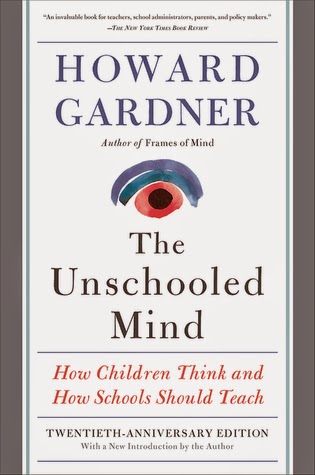If you saw this post, then you know that I'm really really excited about what's to come in the next year. Though I read a lot of textbooks about education and spend a lot of time in discussions with my classmates and professors, I still always feel like I have so much more to learn (which reminds me of this talk that I also love). I've been collecting a number of books lately that have to do with education, and I've added a few to the stack that I've read before but want to re-read. These books cover a number of topics within education: the controversy of standardized testing, the reform movement, the argument behind proponents of grit as a success factor, the achievement gap, etc. These are all big-ticket issues within my field, and I feel like the more I read, the better prepared I'll be to address them. Of course, each author lends his or her own bias to the arguments, so while I'm approaching each book with caution, I'm looking forward to seeing new perspectives on these issues. I thought I would share my booklist here for those who are also interested in reading about education!
The Power of Their Ideas: Lessons from a Small School in Harlem by Deborah Meier // Deborah Meier has an incredible history as an educator. She is the founder of several small schools in Harlem, which became some of the most successful schools in an area that was ridden with low graduation rates and disengagement. In this, Meier writes honestly about the challenges in creating a successful school, and lays out her strategies for others to consider and follow. I've read snippets of this book since I bought it late last year, but I'm looking forward to reading it cover-to-cover soon.
How Children Succeed: Grit Curiosity, and the Hidden Power of Character by Paul Tough // I read this book last summer and it made it onto my top ten list. You can read more of my thoughts about it there; I found it to be extremely thought-provoking but didn't always agree with Tough's assumptions. I do think that I'm better able to speak about educational issues since reading it, and I certainly appreciate how much I learned from it.
The Death and Life of the Great American School System by Diane Ravitch // I was introduced to this book in a class about schools and society in my sophomore year of college. Essentially, it was the book that introduced me to some of the major controversies in education. Diane Ravitch was one of the major players in supporting No Child Left Behind when it was first implemented, and in this she admits that she was greatly mistaken and details why our schools are failing our students and what should be done to help slow and repair the damage. When I read this I didn't have a whole lot of background knowledge so I took Ravitch at her word on a lot of issues. Now that I'm more knowledgeable I'm looking forward to revisiting it with a more critical eye to see if my opinion of it has changed.
The Global Achievement Gap by Tony Wagner // This is one that I haven't read yet, but we've had a lot of discussions about the national achievement gap in my classes this semester and I'm looking forward to expanding my scope to learning about the achievement gap on a global level.
A Mind at a Time by Mel Levine // This is one that I found in my mother's collection of books on children and parenting. Mel Levine is widely respected for his perspectives on learning, and since my background is in psychology I am looking forward to exploring this classic.
Radical by Michelle Rhee // Michelle Rhee is another big player on the educational scene. It's the same type of story: here's what's wrong with our system, here's how we can improve it, here are the overarching social problems that are playing a role in preventing these changes. I'm interested to see Rhee's personal perspective on it all.
The Unschooled Mind by Howard Gardner // Gardner is behind the theory of multiple intelligences, which is one of the most important theories that we use in approaching the idea that each learner is unique. Information is best processed and demonstrated in different ways by different students, and I like Gardner's idea that we should mold our teaching around the way that students learn.
In Schools We Trust by Deborah Meier // Another one by Deborah Meier, and one of my newest acquisitions. We've been having a lot of discussions in my classes that center on the idea of school culture and community. Curating an unconditional learning community in which everyone feels they can learn is one of the biggest challenges and most important goals of schools. The atmosphere of standardized testing often strains that community feeling, so I'm looking forward to seeing what Meier has to say about how we can combat that strain.
It's unrealistic to think that I'll get through all of these in the near future, as I usually look to reading as a way to relax during busy semesters and tend to save these types of books for long breaks when I'm craving stimulation. I don't have any long breaks coming up anytime soon, but I'm hoping to at least revisit Ravitch's book, read In Schools We Trust, and dive into Rhee's sometime this summer.









No comments:
Post a Comment